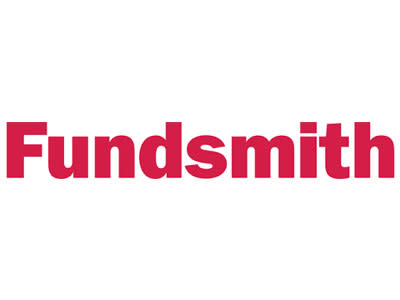Terry Smith is a seasoned investor and has built a strong long-term track record
Smith uses an established three rule process: buy good companies, don't overpay and do nothing
Smith’s long-term performance has been very strong however, shorter-term performance has been tested
The fund does not currently feature on the Wealth Shortlist of funds chosen by our analysts for their long-term performance potential
How it fits in a portfolio
Fundsmith Equity aims to deliver long-term growth by investing in high-quality companies from around the world. Terry Smith, the fund’s manager, focuses on larger businesses from developed markets, which means the fund could complement others investing more in higher-risk emerging markets or smaller companies. A quality growth focus means it could also work well alongside those investing in unloved companies with recovery potential.
Manager
Smith has had a long and esteemed financial services career, working his way from bank analyst at Barclays to Chief Executive of broker Tullett Prebon. He was also previously adviser to the Tullett Prebon pension fund, and appointed Andy Brown of Cedar Rock Capital to manage the investments. Inspired by Brown’s investment philosophy and process, Smith launched Fundsmith Equity in 2010. He initially ran it part-time as he was still chief executive of Tullett Prebon, before leaving the business in 2014 to focus full-time on the fund.
Smith’s been the sole manager of the fund ever since but has the support of a small team that has worked closely with him for many years. He also manages a sustainable version of this fund and is Chief Executive and Chief Investment Officer of the Fundsmith business. As both his funds are similar and the business is focused on a small number of portfolios, we think he’s able to devote enough time to managing the fund.
Given how long Smith has been in the industry, questions around his retirement are natural. Over the years he has made hires and surrounded himself with a tight knit team. Plans for his succession are in place but for the moment he remains integral to Fundsmith. Head of Research Julian Robins, a long-term colleague, was named as the likely successor to Smith when he does eventually decide to step back.
Smith has built an impressive long-term track record and we believe he uses a simple and straightforward investment approach. The fund doesn’t currently feature on the Wealth Shortlist though. To conduct our analysis, we require regular access to the fund manager and up-to-date, monthly portfolio data which Fundsmith choose not to disclose. We can’t make an exception to our process, so we won’t be considering the fund for the list as things stand.
Process
The Fundsmith Equity process follows three simple rules. Rule number one is to ‘buy good companies’. Smith hunts for high-quality businesses which can dominate within their market niche. Companies with intangible assets are favoured, such as brand power, intellectual property, or a product or service that customers can’t do without and would struggle to replace, even when times are tough. His focus on resilient growth means he avoids companies whose prospects are closely tied to the fate of the economy like airlines and property developers.
Smith looks closely at a company’s profits and pricing power – the ability to mark-up prices without impacting consumer demand. Companies must also be in a strong financial position, so businesses that require lots of debt to function such as banks and real estate are avoided.
Smith mainly invests in companies from developed markets. At the end of July 2024, around 69% of the fund was invested in the US and the remainder in European countries like Denmark, France, the UK and Spain. Consumer-focused companies make up the largest part of the fund, and Smith also invests a significant amount into the healthcare and technology sectors.
The second rule is ‘don’t overpay’. Smith only invests in companies he believes he can buy at a fair share price. But that doesn’t mean he isn’t prepared to pay for quality. Whilst some of these companies may be considered ‘expensive’ by some, Smith believes their ability to grow faster than their competitors is worth the premium price.
Smith is a long-term investor and once he invests in a company, along comes rule number three – ‘do nothing’. He aims to hold onto companies for the long term, which helps the fund benefit from compounding growth. Trading infrequently also helps keep dealing costs down and increases performance potential.
The process results in a portfolio of 20-30 companies, and at the end of July there were 29. This means each holding can have a significant impact on performance, both positively and negatively, which can increase risk.
In keeping with the manager’s long-term approach, activity in the portfolio has been limited over the last 12 months. Smith did buy hotel business Marriott after a strong recovery since the pandemic that hit demand in the travel and tourism sector. Smith also bought US cybersecurity company Fortinet, US semiconductor company Texas Instruments and Smith’s latest purchase is Swedish industrial equipment maker Atlas Copco. Over the last 12 months Smith has sold, Estee Lauder. The cosmetic company had been struggling following a lack of demand from consumers in China.
Culture
Fundsmith is a boutique fund group with offices in Mauritius, London and the US. It was founded by Terry Smith in 2010 with the launch of Fundsmith Equity and has expanded to include a small stable of funds and investment trusts, most of which are run along the same lines. This dedication to the founding investment philosophy is attractive.
The business is employee-owned, with Smith owning the largest stake, and managers all investing significantly in the funds. This means both the business and the funds are run with the long term in mind, and managers’ interests are aligned with investors.
Investors should note that the fund is large in size, as the end of July it stood at around £24bn and we have not conducted full due diligence on the group’s risk and governance oversight. This is because the group’s funds do not feature on the Wealth Shortlist or in any of our other investment solutions.
ESG integration
The team at Fundsmith aims to invest in high quality companies that are in control of their own destiny with the potential to generate a high return on capital. This generally discounts companies in areas like oil & gas production, mining, airlines, biotechnology and banks, but the flagship Fundsmith Equity fund does not have any specific exclusions, and it does invest in tobacco. While the team considers material Environmental, Social and Governance (ESG) issues as part of the wider investment case for each company they invest in, their ESG integration approach isn’t as formalised as that implemented by some other companies.
Fundsmith also offer a Sustainable fund, which does have formal exclusions. The Sustainable fund avoids companies that generate meaningful revenues from the following areas: aerospace & defence, metals and mining, oil, gas and consumable fuels, tobacco, gas utilities and electric utilities, brewers, distillers and vintners and casinos and gaming.
In 2020, the firm formed a Stewardship & Sustainability Committee to centralise discussions around their stewardship and responsible investment-related policies, processes, and activities. While we feel Fundsmith has well thought out positions on many ESG topics, transparency on its ESG-related activities could be improved.
Cost
The fund is available for an annual ongoing charge of 0.94%. We recognise the long-term value that Smith has added over and above these charges, although there’s no guarantee of that in the future. The HL platform fee of up to 0.45% per year also applies, except in the HL Junior ISA, where no platform fee applies.
Performance
The fund has performed significantly better than its benchmark the MSCI World and its peers in the IA Global sector since launch in November 2010 to the end of July 2024. Over this time the fund has returned 584.20%* compared with 403.83% for the MSCI World index and 249.67% for the sector average. Remember past performance isn’t a guide to the future.
While the fund’s quality growth style has helped, our analysis suggests that Smith’s stock selection has been the primary driver of returns. His focus on quality has helped the fund hold up relatively well when markets are falling.
Over the past 12 months, the fund has delivered returns of 8.90%. This was behind the benchmark which returned 19.09% and the IA Global sector’s average return of 12.34%. During this period our analysis suggests that having a smaller amount invested in US semi-conductor Nvidia than the benchmark was the largest detractor to relative performance. European luxury brand LVMH and US healthcare company Idexx Laboratories also had a negative impact on performance.
It wasn’t all bad though, the fund’s investment in European healthcare giant Novo Nordisk performed strongly, as did US social media company Meta (Facebook) and US tobacco company Philip Morris.
Annual percentage growth
31/07/2019 - 31/07/2020 | 31/07/2020 - 31/07/2021 | 31/07/2021 - 31/07/2022 | 31/07/2022 - 31/07/2023 | 31/07/2023 - 31/07/2024 | |
|---|---|---|---|---|---|
Fundsmith Equity | 4.33% | 27.11% | -7.37% | 6.99% | 8.90% |
IA Global | 0.31% | 27.05% | -2.75% | 5.30% | 12.34% |
MSCI World | 0.58% | 28.08% | 4.27% | 7.89% | 19.09% |


